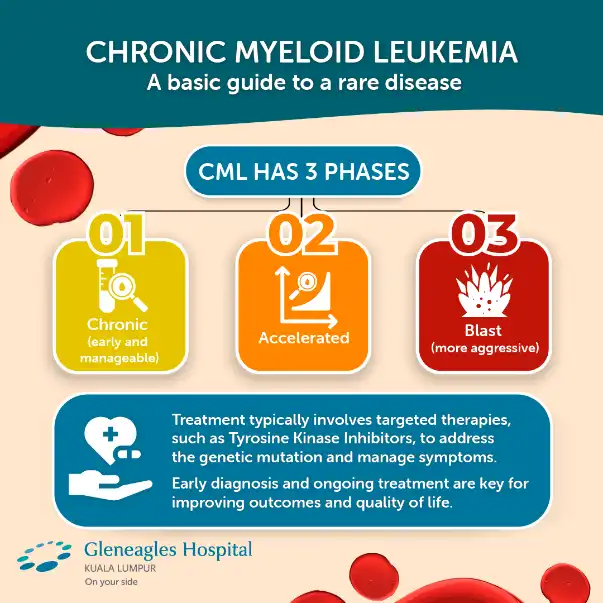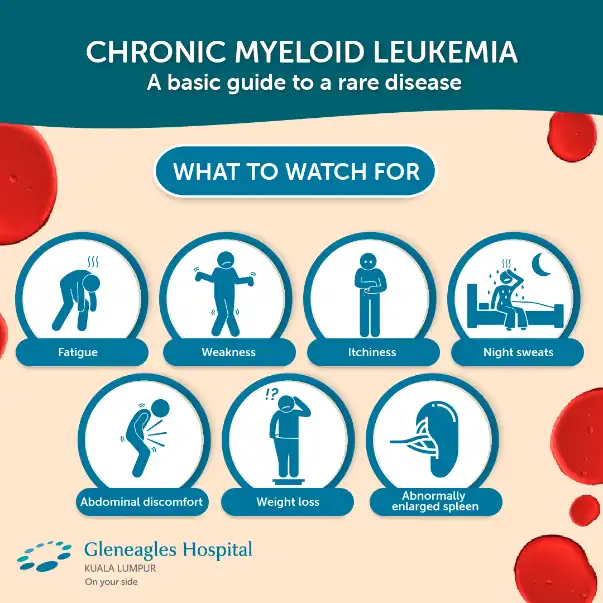.webp?sfvrsn=79342cd_7)
Chronic Myeloid Leukemia (CML) is a rare cancer affecting blood and bone marrow. It typically affects young adults and rarely adolescents or children. This disease is characterised by the overproduction of abnormal white blood cells, often progressing slowly and is usually detected through routine blood tests.
CML has three distinct phases: the chronic phase, which is the early and more manageable stage; the accelerated phase; and the blast phase, which is the most aggressive. In the chronic phase, the disease progresses slowly, and patients may experience few or no symptoms. As the disease advances to the accelerated and blast phases, the cancer cells multiply more rapidly, leading to more severe symptoms and a poorer prognosis. It's important for individuals to be aware of the different stages of CML and to work closely with their healthcare providers to manage the condition effectively.

Symptoms of Chronic Myeloid Leukemia(CML)
Chronic Myeloid Leukemia (CML) is a type of blood cancer that affects the production and function of white blood cells. Here are some common symptoms to watch for:
While these symptoms can also be associated with other conditions, it is important to consult with doctor for a proper diagnosis.

Treatment
The treatment of Chronic Myeloid Leukemia (CML) often involves specialised therapies, such as Tyrosine Kinase Inhibitors (TKI), to address the genetic mutation and help manage symptoms. Early detection and continued treatment are crucial for enhancing outcomes and quality of life.
Advancement in Blood Cancer Care
The field of blood cancer care has also witnessed remarkable advancements in recent years, driven by the relentless pursuit of innovation. From ground-breaking treatments to cutting-edge diagnostic tools, the landscape of blood cancer management is evolving at a rapid pace, offering renewed hope to patients and their families.
One of the most significant innovations transforming blood cancer care is the rise of targeted therapies. Traditional chemotherapy treatments, while effective, often came with weakening side effects that diminished the quality of life for patients. However, the development of targeted drugs has revolutionised the approach to blood cancer treatment.
These targeted therapies, designed to attack specific genetic mutations or pathways within cancer cells, have demonstrated impressive results in various blood cancer types, including leukemia, lymphoma, and multiple myeloma. By precisely targeting the root causes of the disease, these innovative drugs have the potential to improve patient outcomes while minimising the adverse effects associated with conventional chemotherapy.

Wait a minute

Wait a minute